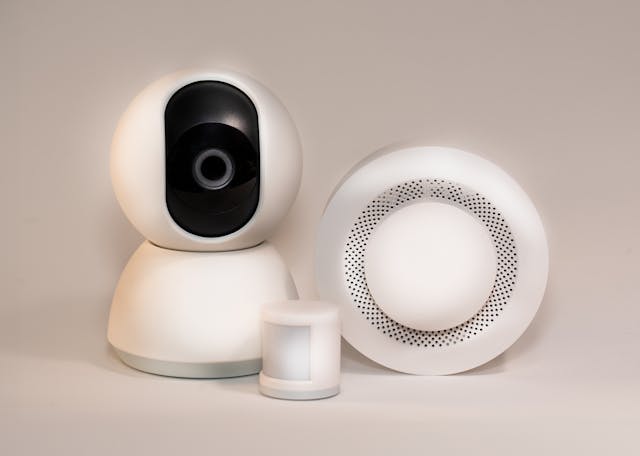
 Smoke detectors are one of the most crucial safety features in any home. They provide early warning of a fire, giving you and your family valuable time to escape safely. However, for smoke detectors to do their job effectively, they need regular maintenance. Neglecting these devices can have serious, even life-threatening consequences. Here’s what you need to know about smoke detector maintenance to ensure your home is as safe as possible.
Smoke detectors are one of the most crucial safety features in any home. They provide early warning of a fire, giving you and your family valuable time to escape safely. However, for smoke detectors to do their job effectively, they need regular maintenance. Neglecting these devices can have serious, even life-threatening consequences. Here’s what you need to know about smoke detector maintenance to ensure your home is as safe as possible.
According to the National Fire Protection Association (NFPA), working smoke alarms reduce the risk of dying in a fire by half. However, approximately three out of five home fire deaths occur in homes with no smoke alarms or non-functioning alarms. In many cases, the smoke detectors failed because the batteries were dead or the devices were not properly maintained.
Regular smoke detector maintenance is a simple yet powerful way to protect your loved ones and your home. Here’s how to keep your smoke detectors in top working condition.
One of the simplest and most effective maintenance tasks is testing your smoke detectors every month. Here’s how:
If you have hearing-impaired family members, consider installing alarms that feature strobe lights or vibrating pads in addition to the audible alarm.
Even if your smoke detectors seem to be functioning well, it’s important to replace the batteries at least once a year. Some detectors may have longer-lasting lithium batteries that don’t require annual replacement, but it’s still crucial to test these alarms regularly.
Many experts suggest changing the batteries when you change your clocks for daylight saving time as a helpful reminder. If your smoke detector starts “chirping,” it’s an indication that the battery is low and needs to be replaced immediately.
Tip: Use high-quality, long-lasting batteries to ensure your smoke detectors are always ready to protect you.
Dust and debris can interfere with your smoke detector’s ability to function properly. To clean your smoke detectors:
Note: If your smoke detector is hardwired, make sure to turn off the power before cleaning.
Smoke detectors have a limited lifespan, typically around 10 years. After this period, the sensors can become less reliable, even if the alarm still appears to work. Check the date of manufacture on the back of the detector to see if it’s time for a replacement. If your smoke detector is over 10 years old, it’s time to invest in a new one.
When replacing your smoke detectors, consider upgrading to models with advanced features, such as interconnected alarms that sound throughout the house when one detector is triggered.
Proper placement of smoke detectors can make a significant difference in their effectiveness:
There are two main types of smoke detectors: ionization and photoelectric. Ionization detectors are better at sensing fast, flaming fires, while photoelectric detectors are more responsive to slow, smoldering fires. For the best protection, consider installing both types or opting for dual-sensor alarms that combine both technologies.
Even with well-maintained smoke detectors, it’s crucial to have a fire safety plan in place. Practice fire drills with your family, teach everyone how to safely exit the home, and designate a meeting place outside. Make sure all household members know how to call 911 in case of an emergency.
Maintaining your smoke detectors is a simple yet essential task that can save lives. By testing your alarms regularly, replacing batteries, and keeping the devices clean and up-to-date, you can ensure that your home is always protected. Don’t wait for a fire to remind you of the importance of smoke detector maintenance—take action today and enjoy peace of mind knowing you’ve made your home as safe as possible.
Stay safe, and make smoke detector maintenance a regular part of your home care routine!
